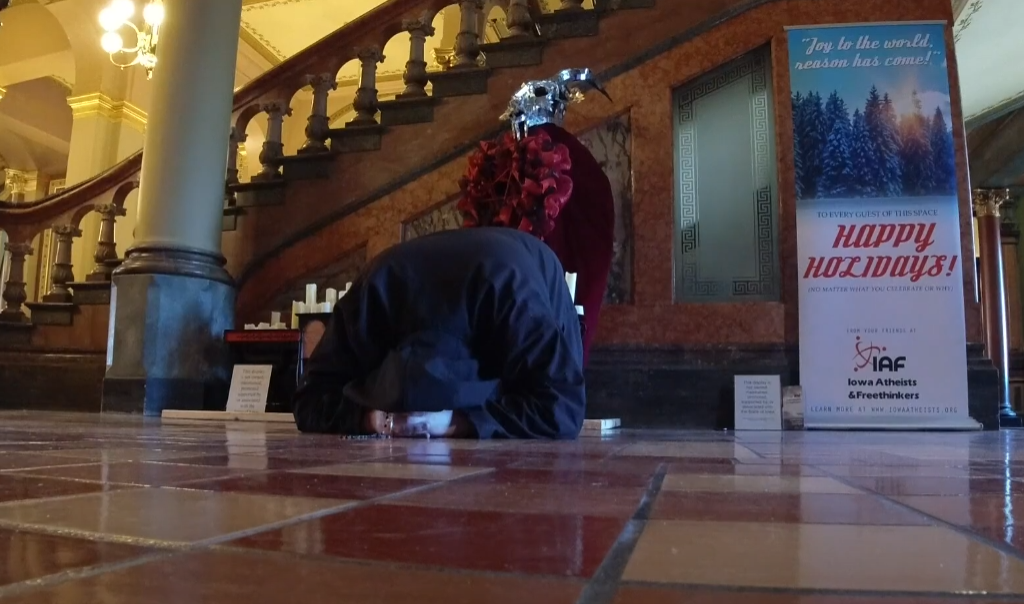The Polk County Attorney’s Office has charged Michael Cassidy with felonies related to hate crimes after he damaged a Satanic Temple statue in the state capital of Iowa.
Initially charged with a misdemeanor, Cassidy’s offense has been elevated to a class D felony, third-degree criminal mischief in violation of individual rights, due to evidence indicating the act was motivated by the victim’s religion.
During an appearance on, Cassidy, a former Republican candidate for Mississippi’s State House District 45, claimed that the statue’s existence angered him and defended his acts as Christian civil disobedience.
The statue, representing Baphomet, was part of a holiday display approved by the Iowa Department of Administrative Services. The Satanic Temple of Iowa emphasized its right to display religious symbols in the public forum, asserting equal rights under the First Amendment.
Mortimer Adramelech, a minister from the Satanic Temple, highlighted the group’s advocacy for effective and artful protest. Despite the Satanic Temple’s assertion that the display was for holiday purposes and its non-belief in Satan or the supernatural, Cassidy’s destructive act caused irreparable damage.
Fairness Commitment in Iowa

The prosecutor’s office reiterated its dedication to ensuring fair and equitable outcomes, underscoring the principle of equal treatment under the law, irrespective of religious affiliation or any other determining factors.
Baphomet, a symbol with historical significance dating back to the Knights Templar era, has been subject to various interpretations over time. Philip IV of France infamously accused the Knights Templar of worshiping Baphomet, leading to their persecution and execution.
While Cassidy’s attorney has yet to comment on the matter, the incident raises questions about religious tolerance and the limits of civil disobedience in public discourse.
This case draws attention to the complex relationship that exists in contemporary society between the right to free speech and religious beliefs, underscoring the complexity of these problems as the Iowa judicial process moves on.


Comments are closed.